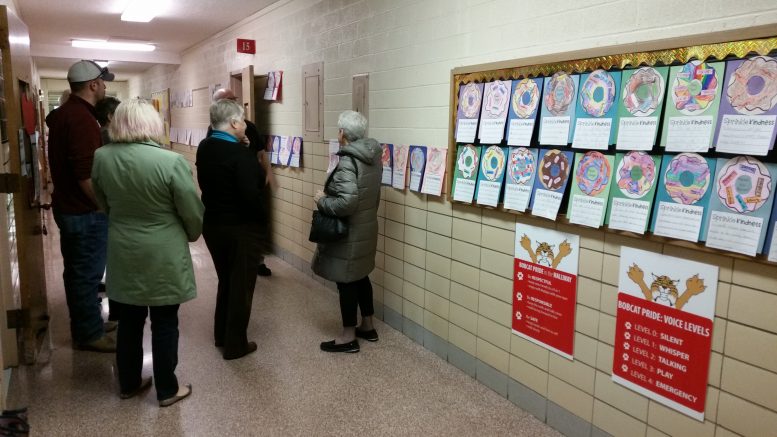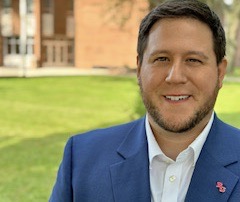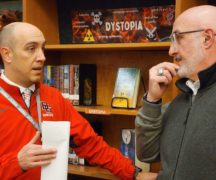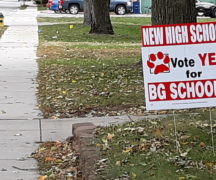By JAN LARSON McLAUGHLIN
BG Independent News
Bowling Green Board of Education took the first official steps Tuesday to put the district’s existing income tax on the November ballot and to start a study of building needs.
The board voted to begin the process to renew the district’s income tax. Financial consultant David Conley has recommended to the board that the district ask voters to change the existing income tax from a five-year to a continuing issue.
That would allow the district to keep a lower carryover since the $3.8 million from the income tax wouldn’t be in question every five years.
Voters already converted two other five-year issues to continuing – and if they approved this last one, it would mean the district could carry a lower balance and make better use of funding, Conley said.
Income taxes can only be placed on May and November ballots, so the district has three chances before it expires, Conley said.
Also on Tuesday, the board entered an agreement with Fanning Howey Associates for master planning services. The firm will gather information to help the district decide on making building renovations, additions or new construction.
The contract with Fanning Howey will not exceed $40,000.
Fanning Howey has worked with 190 Ohio school districts to design buildings, including at Perrysburg, Eastwood, North Baltimore and Northwood in Wood County.
“This is a very positive step forward to address the needs,” Bowling Green Superintendent Francis Scruci said.
Representatives of the firm met with the board earlier this month and described their services of studying the building conditions, the enrollment and educational visioning – such as determining if the district wants its buildings to be more student-centered.
“How are you teaching today? How do you want to teach tomorrow? Is the building getting in the way?” Dan Obrynba, of Fanning Howey, asked in early June.
The visioning process looks beyond “if it was good enough for me … it’s good enough for kids today,” he said.
To determine what the community wants, the study process will begin by collecting information. A small advisory group will be created to include the superintendent, one or two board members, facilities director, treasurer, and one or two community leaders.
From there, a bigger group of 40 to 80 people will be formed. That group will be made of district employees, parents, community leaders and business leaders. The group will tour facilities, plus rank needs and obstacles.
Open community meetings will also be scheduled.
“What you’re trying to do through this process is create ownership in the community,” Obrynba said.
Scruci said the information gathering process will start to ramp up in August, but he stressed that the priority this fall will be the general election.
“Our major focus in November has to be the income tax,” Scruci said.
In other business at Tuesday’s meeting, Scruci reported on the plan submitted to the state on how the district will make a safe return to in-person instruction in the fall. The plan can be found on the district’s website, under the heading “news and events.”
The plan addresses optional masking, physical distancing, handwashing, the COVID reporting process, cleaning of facilities, contact tracing, diagnostics and screening, vaccination information, and accommodations for children with special needs.
“We’re going to start the year where we ended – except masks are optional,” Scruci said.
Scruci also reported that the turf project was finished ahead of schedule, and soccer and football teams are already practicing on it. Lacrosse, soccer and football camps are planned at the field.
“I think you’re going to see a lot of benefit throughout our community,” from the turf project, Scruci said.
Also at the meeting, community member Tom Klein talked about the battle in some states over the teaching of Critical Race Theory. Governors in at least 20 states have or are considering acts to prevent any teaching about systemic racism.
“Racism is still here,” Klein said.
As a lifelong educator, Klein said he finds it very troubling that some states want to block history or political science teachers from addressing racism in their classes.





